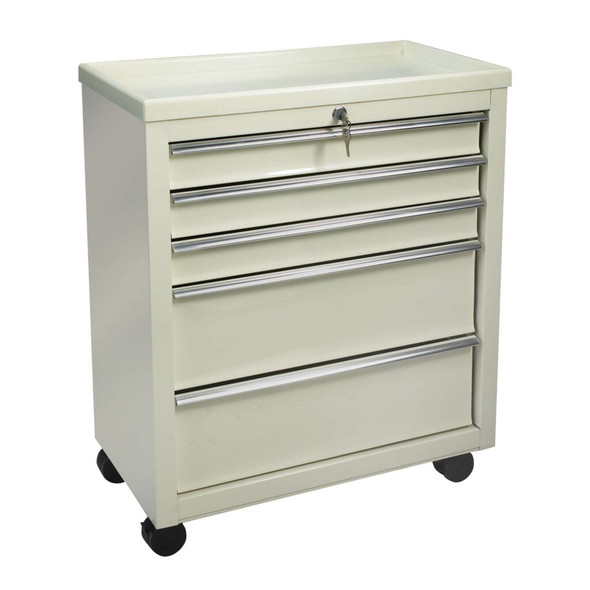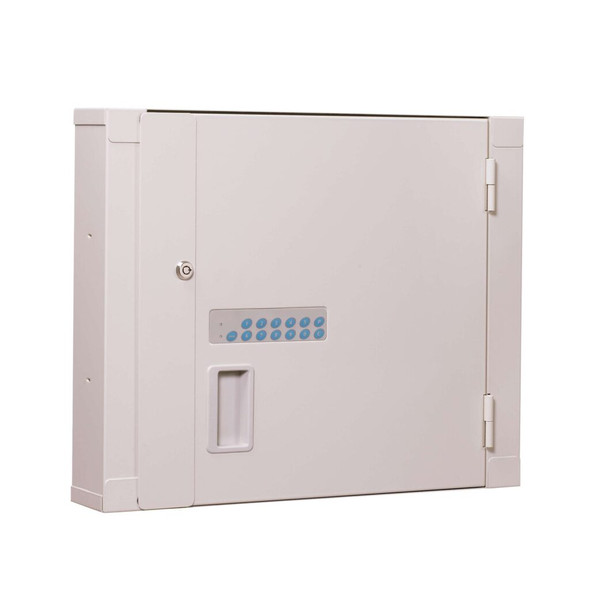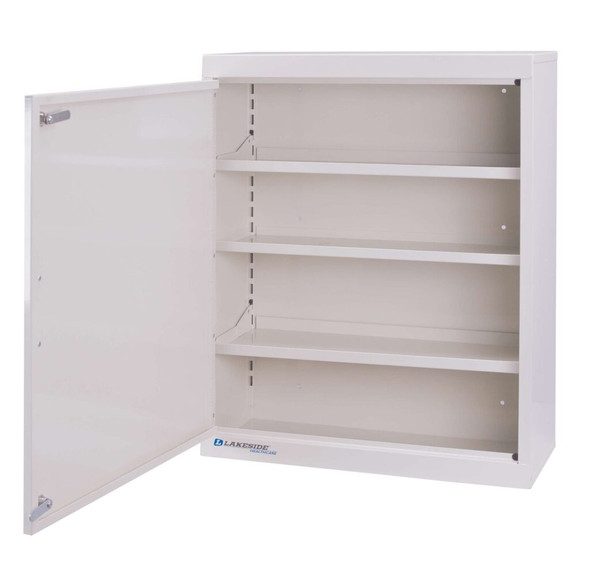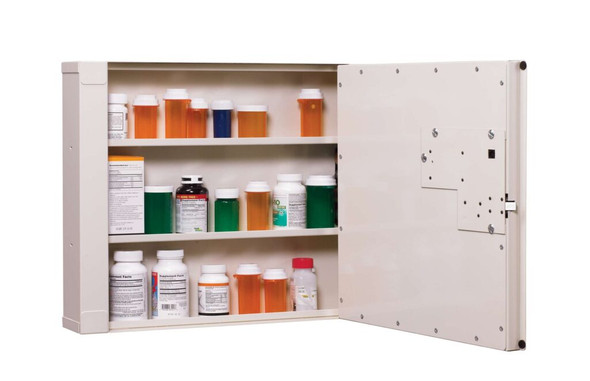Furnishings and Equipment
Clinical Furnishings and Equipment are essential components of any healthcare setting, supporting patient care, clinical procedures, and medical workflow. From examination tables and procedure chairs to overbed tables and medical trolleys, these furnishings are designed for durability, hygiene, and ergonomic efficiency. At MedicalEx, we provide a comprehensive selection of clinical furniture to help hospitals, clinics, and outpatient centers maintain high standards of care and safety.
Why Clinical Furnishings and Equipment Are Essential
Clinical furnishings and equipment are not just about comfort — they are integral to care delivery, infection control, and operational efficiency. Proper furnishings reduce clinician fatigue, enable safer procedures, and improve patient experiences. Whether supporting mobility, offering secure storage, or facilitating diagnostic work, clinical equipment ensures compliance with healthcare standards and enhances productivity across all departments.
- Enables accurate and efficient patient examinations and procedures.
- Improves hygiene and infection prevention through easy-clean designs.
- Reduces physical strain for medical personnel during prolonged tasks.
- Supports patients with mobility or recovery needs.
- Maintains compliance with clinical and safety regulations.
What Is Clinical Furnishings and Equipment?
Clinical furnishings and equipment refer to the specialized, medical-grade furniture used in patient care settings. These include exam tables, procedure chairs, mobile carts, IV poles, overbed tables, and clinician seating. Unlike standard furniture, clinical furnishings are designed for repeated sanitation, patient safety, and workflow optimization. They are constructed from non-porous materials like stainless steel, antimicrobial vinyl, and powder-coated metals to withstand high-use environments and strict infection control protocols.
Types of Clinical Furnishings and Equipment
Examination Tables
Best for: Physical assessments, diagnostics, and minor procedures.
Examination tables offer essential support during clinical evaluations, ensuring patients are positioned comfortably and practitioners have full access. These tables often feature adjustable sections, built-in storage, and high load capacities for universal use.
Key Features:
- Adjustable height and backrest for ergonomic positioning.
- Antimicrobial upholstery that is easy to disinfect.
- Integrated drawers or shelves for tool storage.
- Sturdy frames supporting various patient sizes.
- Compatible with disposable paper rolls for hygiene.
Applications:
- GP clinics and specialist examination rooms.
- Outpatient surgical centers.
- Physical therapy and sports medicine facilities.
- Pediatrics and gynecology offices.
Procedure Chairs
Best for: Minor surgical procedures, ENT, dermatology, or dental evaluations.
These versatile chairs allow clinicians to adjust patient positioning with precision during procedures. Many models feature powered recline, rotation, and height adjustment options to accommodate different types of exams and treatments.
Key Features:
- Multiple positioning options, including Trendelenburg.
- Removable or pivoting armrests and foot supports.
- Heavy-duty steel frames with high weight tolerance.
- Padded, fluid-resistant upholstery.
- Electric or manual controls for adjustment.
Applications:
- ENT and dermatology clinics.
- Outpatient procedures and aesthetic treatments.
- Gynecological and urological care.
- Dental and ophthalmology settings.
Medical Carts and Trolleys
Best for: Transporting and organizing medical supplies and instruments.
These mobile units enhance efficiency by keeping critical tools within reach. Medical carts come in various configurations such as anesthesia carts, emergency crash carts, or procedure-specific models with customizable drawers and accessories.
Key Features:
- Lockable drawers for secure storage.
- Sturdy caster wheels for smooth mobility.
- Antimicrobial surfaces for infection control.
- Drawer dividers and work surfaces for organization.
- Available with power integration for devices.
Applications:
- Emergency rooms and ICU units.
- Operating rooms and surgical prep areas.
- Outpatient procedure rooms.
- Ward-based nursing care.
Overbed Tables
Best for: Bedside support for patients during meals, activities, or care.
Overbed tables provide adjustable, mobile surfaces that improve the quality of care for bed-bound patients. They are ideal for both temporary and long-term hospital stays and are built for easy repositioning and cleaning.
Key Features:
- Height-adjustable columns to fit any bed height.
- Durable laminate or ABS tops with spill guards.
- Locking casters for safety and stability.
- Tilting top options for reading or tablets.
- Lightweight construction for easy handling.
Applications:
- Inpatient hospital rooms.
- Rehabilitation and recovery centers.
- Assisted living and long-term care.
- Home healthcare environments.
Clinical Stools and Chairs
Best for: Providing ergonomic seating for clinicians during procedures or examinations.
These stools are designed for mobility, comfort, and support. With features like pneumatic height adjustment, foot rings, and padded seats, they ensure clinicians maintain proper posture and reduce fatigue during extended use.
Key Features:
- Swivel seats with adjustable height functionality.
- Five-leg base with smooth-rolling casters.
- Antimicrobial vinyl cushions.
- Optional backrest and foot support features.
- Compact designs to fit tight exam rooms.
Applications:
- GP and specialist consultation rooms.
- Dentistry and podiatry clinics.
- Diagnostic labs and imaging suites.
- Nursing stations and prep areas.
When to Use Clinical Furnishings and Equipment
Clinical furnishings should be used in all medical environments that require patient interaction, diagnostics, or minor procedures. These products are vital for ensuring hygiene, comfort, and procedural efficiency.
- During general patient consultations or physical exams.
- In minor procedure or treatment rooms.
- For bedside patient care and mobility support.
- In emergency and surgical preparation zones.
- Across rehabilitation and long-term care settings.
How to Use Clinical Furnishings and Equipment
- Position each item for optimal workflow and accessibility.
- Disinfect surfaces between each patient use.
- Adjust height or tilt settings to match the procedure.
- Lock wheels or casters for stability when stationary.
- Conduct regular checks to ensure safety and function.
Key Features of Clinical Furnishings and Equipment
- Ergonomic Design: Improves comfort for both patients and healthcare providers during use.
- Infection Control Materials: Non-porous, antimicrobial surfaces for safe disinfection.
- Mobility and Flexibility: Wheeled units and adjustable components improve workflow.
- High Load Capacity: Equipment designed to support patients of all sizes safely.
- Regulatory Compliance: Designed to meet healthcare hygiene and safety standards.
Benefits of Clinical Furnishings and Equipment
Streamlined Workflow
Ergonomic design and integrated storage help medical staff work more efficiently, reducing delays and improving patient throughput.
Enhanced Patient Safety
Sturdy, stable equipment supports safe positioning and reduces risks during exams and treatments.
Improved Comfort and Dignity
High-quality padding, adjustable features, and mobility aids ensure a respectful and comfortable experience for patients.
Ease of Maintenance
Surfaces are designed for quick, effective cleaning, supporting infection control protocols and reducing operational downtime.
Cost-Effective Durability
Built for daily use, medical furnishings resist wear and tear, minimizing long-term replacement costs and downtime.
How to Choose the Right Clinical Furnishings and Equipment
- Match Equipment to Specialty: Select furnishings based on clinical discipline (e.g., ENT, general practice, dermatology).
- Assess Available Space: Choose compact or foldable options for small exam rooms or mobile use.
- Prioritize Patient Safety: Ensure furnishings have adequate weight ratings and safety locks.
- Focus on Hygiene: Opt for antimicrobial materials and easy-clean finishes.
- Look for Adjustability: Height and angle adjustability supports diverse care needs and staff comfort.
Frequently Asked Questions (FAQs)
What materials are commonly used in clinical furnishings?
Stainless steel, powder-coated metals, and antimicrobial vinyl are standard due to their durability and ease of disinfection.
Can clinical furniture be used in home healthcare?
Yes, many pieces — such as overbed tables and stools — are suitable for home care when compact and easy to clean.
How often should clinical furnishings be cleaned?
Surfaces should be disinfected after every patient use with medical-grade cleaning agents approved for clinical environments.
What is the difference between exam tables and procedure chairs?
Exam tables are typically flat and static, while procedure chairs offer multi-positional adjustments for surgical or specialist exams.
Do furnishings come assembled?
Some products arrive pre-assembled, while others require minimal setup. Always refer to manufacturer instructions for installation.
Related Products
Medical Lighting Equipment
Ensure proper visibility for exams and procedures with surgical-grade lighting solutions. Explore Medical Lighting →
Infection Control Supplies
Support your furnishings with disinfectants, covers, and PPE for complete clinical hygiene. View Infection Control →
Diagnostic Instruments
Equip each clinical space with essential tools like stethoscopes, otoscopes, and thermometers. Browse Diagnostic Tools →
Patient Handling Equipment
Promote safety during transfers and repositioning with hoists, sliders, and mobility aids. Shop Mobility Aids →
Furnish your facility with top-tier clinical equipment from MedicalEx. Our ergonomic, hygienic, and durable solutions are trusted by professionals across all medical disciplines. Shop now and elevate your standard of care.
-


Lakeside Deep Shelf Utility Cart – 2 Shelves, 21 X 49 in, Heavy-Duty 700-Lb Capacity, Stainless Steel
Lakeside
$2,188.99Lakeside 757 Deep Shelf Utility Cart is designed for professionals who need secure transport of heavy loads in demanding environments. When you need to move supplies or equipment safely, this cart's deep shelves and reinforced frame help prevent spills...- SKU:
- 757
$2,188.99 -


Lakeside Stainless Steel Utility Cart – 3 Shelf, 18 X 27 in, 500-Lb Capacity, Sound-Deadening Shelves
Lakeside
$556.99Lakeside 422 Stainless Steel Utility Cart is designed for busy healthcare and food service environments where reliability and quiet operation matter. If you need a cart that keeps noise to a minimum and stands up to frequent cleaning, this model delivers...- SKU:
- 422
$556.99 -


Lakeside Tubular Utility Cart – Stainless Steel Frame, 3 Shelves, 21 x 33 in Platform, Durable Construction
Lakeside
$1,608.99Lakeside 244 Tubular Utility Cart is designed for busy healthcare and foodservice environments where durability and maneuverability matter most. If you need a reliable cart for dining area bussing, tray setup, or soiled dish stations, this model helps...- SKU:
- 244
$1,608.99 -

Lakeside Tubular Utility Cart – Stainless Steel, 3 Shelves, 18 X 27 in, 500-Lb Capacity, Dual Handles
Lakeside
$1,307.99Lakeside 222 Tubular Utility Cart is designed for busy healthcare and food service environments where reliability and easy maneuvering matter. Whether you are transporting supplies in a dining area, setting up a tray station, or clearing soiled dishes,...- SKU:
- 222
$1,307.99 -

Lakeside Tubular Utility Cart – Certified, Chrome Plated Frame, 2 Shelves, 500-Lb Capacity
Lakeside
$947.99Lakeside 472 Tubular Utility Cart is designed for busy healthcare environments where reliability and easy maneuverability matter most. Whether you are transporting supplies in a dining area, setting up a tray station, or clearing soiled dishes, this...- SKU:
- 472
$947.99 -


Lakeside Tubular Utility Cart – Stainless Steel Construction, Two Shelves, 24 in Width, Durable Design
Lakeside
$1,146.99Lakeside 210 Tubular Utility Cart is designed for busy healthcare and food service environments where reliable transport is essential. When you need to move supplies through tight hallways or crowded rooms, this cart’s dual handles and all-swivel...- SKU:
- 210
$1,146.99 -

Lakeside Tubular Utility Cart – Chrome Plated Frame, 3 Stainless Steel Shelves, 500-Lb Capacity
Lakeside
$1,024.99Lakeside 479 Tubular Utility Cart is designed for busy healthcare environments where efficiency and durability matter most. Whether you are moving supplies in a hospital, setting up trays in a dining area, or bussing soiled dishes, this cart supports...- SKU:
- 479
$1,024.99 -


Lakeside Stainless Steel Utility Cart – 3 Shelves, 18 x 27 in Platform, Heavy-Duty Construction, Open Design
Lakeside
$1,230.99Lakeside 722 Stainless Steel Utility Cart is designed for demanding healthcare and facility environments where reliable transport and easy cleaning are essential. If you need to move heavy loads or supplies across uneven floors, this cart’s large 8...- SKU:
- 722
$1,230.99 -


Lakeside Stainless Steel Utility Cart – 2 Shelf, 21 X 33 in, Heavy-Duty 700-Lb Capacity, All-Welded Construction
Lakeside
$1,310.99Lakeside 743 Stainless Steel Utility Cart is designed for demanding healthcare and facility environments where strength and easy maneuverability matter. If you need to transport heavy loads or supplies across uneven surfaces, this cart helps you move...- SKU:
- 743
$1,310.99 -


Lakeside Stainless Steel Utility Cart – 2 Shelves, X 24 in, 8 in Front Wheels, 700-Lb Capacity
Lakeside
$1,134.99Lakeside 710 Stainless Steel Utility Cart is designed for professionals who need reliable transport of supplies in busy healthcare or food service settings. If you move heavy loads across uneven floors or need to protect walls and furniture, this cart...- SKU:
- 710
$1,134.99 -


Lakeside Plastic Utility Cart – Adjustable Middle Shelf, 3 Shelves, Durable Construction, 36 in Length
Lakeside
$384.99Lakeside 2509 Plastic Utility Cart is designed for busy healthcare and foodservice environments where flexibility and durability matter most. Whether you are bussing tables, setting up tray stations, or transporting soiled dishes, this cart adapts to...- SKU:
- 2509
$384.99 -


Lakeside Plastic Utility Cart – 3 Shelves, Extruded Aluminum Legs, 16 in Wide, Durable Construction
Lakeside
$366.99Lakeside 2501 Plastic Utility Cart is designed for busy healthcare environments where reliable transport of equipment and supplies is essential. If you manage a medical facility, dining area, or need a dependable cart for set-up stations, this utility...- SKU:
- 2501
$366.99 -


Lakeside Plastic Utility Cart – Dual Handles, 3 Shelves, 300-Lb Capacity, Black, Easy to Clean
Lakeside
$228.99Lakeside 2500 Plastic Utility Cart is designed for busy healthcare environments where reliable transport of supplies matters. Whether you are moving equipment in a clinic, setting up a tray station, or bussing dining areas, this cart supports your...- SKU:
- 2500
$228.99 -

Lakeside Super Saver 5-Drawer Bedside Cart – Compact 29 in Height, Unique Drawer Configuration, 83 lb Weight
Lakeside
$926.99Lakeside Super Saver 5-Drawer Bedside Cart is designed for healthcare professionals who need reliable storage in tight spaces. If you manage supplies in a busy clinic or patient room, this cart helps you stay organized and efficient. Its compact size and...- SKU:
- BV05
$926.99 -

Lakeside Super Saver 3-Drawer Bedside Cart – Compact 29 in Height, 3 Swivel Casters, Beige Finish
Lakeside
$937.99Lakeside BV06 Super Saver 3-Drawer Bedside Cart is designed for cost-conscious healthcare environments that need reliable storage and easy mobility. If you manage a busy patient care area or need a compact solution for bedside organization, this...- SKU:
- BV06
$937.99 -

Lakeside Stainless Steel Stationary Storage Slope Top Cabinet – 30 X 18 X 90 in, Key Lock, Easy to Sanitize
Lakeside
$8,685.99Lakeside ST-3018 Stainless Steel Stationary Storage Slope Top Cabinet is designed for healthcare environments where durability and cleanliness are essential. This stationary cabinet helps you organize supplies efficiently, while the stainless steel...- SKU:
- ST-3018
$8,685.99 -

Lakeside Narcotic Cabinet Programming and Audit Software – Compatible with High-Security Cabinets
Lakeside
$1,267.99Lakeside LHS-550 Narcotic Cabinet Programming and Audit Software helps you control access to high-cost medications and supplies with confidence. Designed for healthcare facilities and pharmacies, this solution supports secure medication management and...- SKU:
- LHS-550
$1,267.99 -

Lakeside Narcotic Cabinet Extra Shelf – Compatible with LNC-5/LNC-5S Cabinets, 24 × 10 × 4 in, 10 lb Steel
Lakeside
$951.99Lakeside LNC-5SHF Narcotic Cabinet Extra Shelf is designed for facilities that need flexible storage for controlled medications. If you manage a pharmacy, clinic, or hospital and require extra organization in your LNC-5 or LNC-5S cabinets, this shelf...- SKU:
- LNC-5SHF
$951.99 -


Lakeside Narcotic Cabinet Single Door, Double Lock – 3 Adjustable Shelves, 24 x 10 x 30 in
Lakeside
$970.99Lakeside LNC-5 Narcotic Cabinet Single Door, Double Lock offers a secure and organized solution for safeguarding high-value medications in healthcare settings. Designed for clinics, hospitals, and pharmacies, this cabinet helps you maintain strict...- SKU:
- LNC-5
$970.99 -


Lakeside High-Security Storage Cabinet – Electronic Lock, 3 Fixed Shelves, 22 x 4.5 x 18 in
Lakeside
$1,876.99Lakeside LHS-120 High-Security Storage Cabinet is designed for healthcare facilities that need secure, reliable storage for high-value medications and supplies. When you manage controlled substances or sensitive inventory, dependable access control is...- SKU:
- LHS-120
$1,876.99
